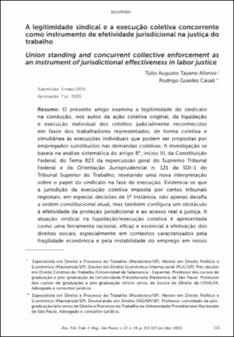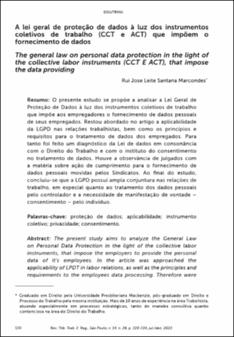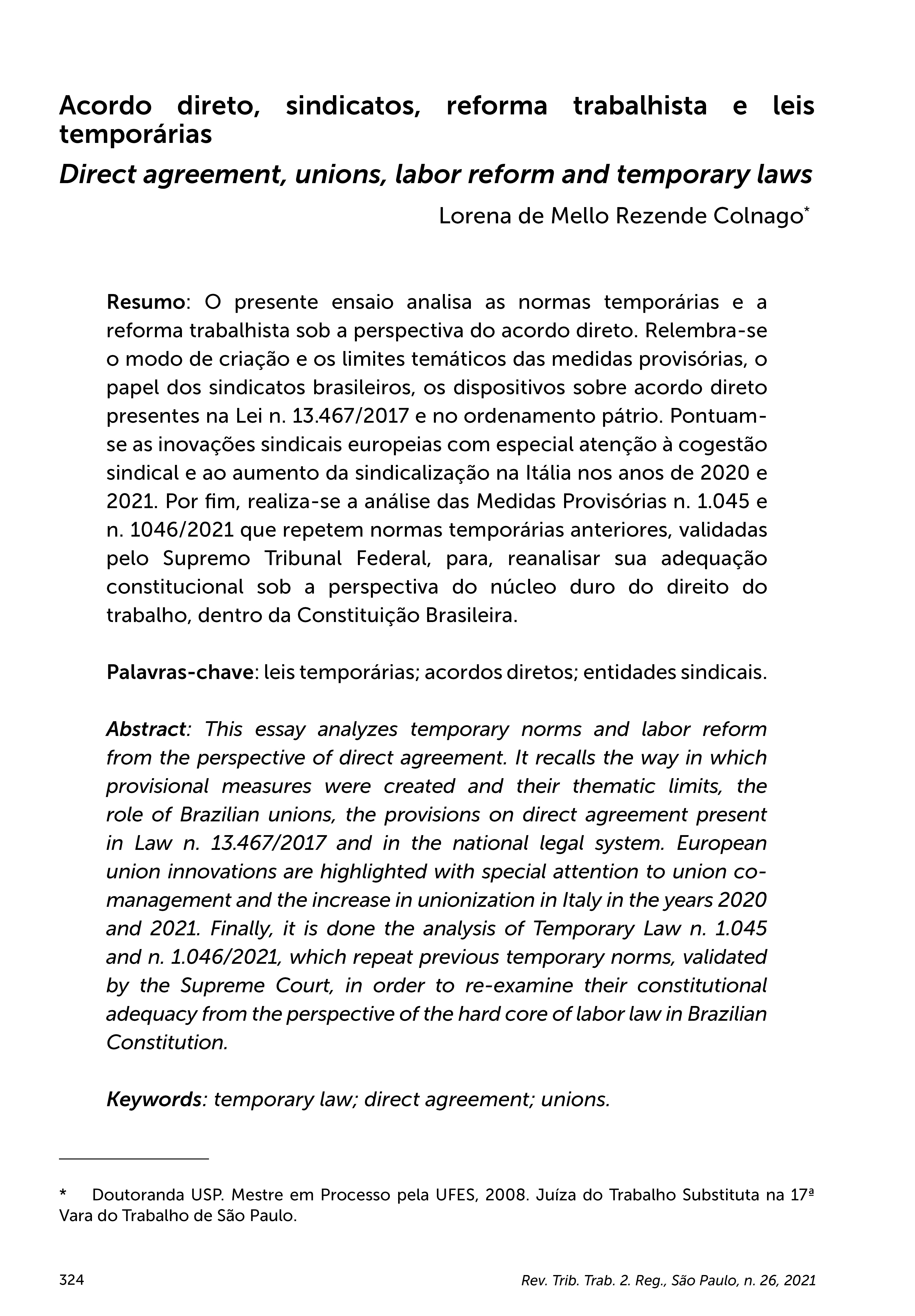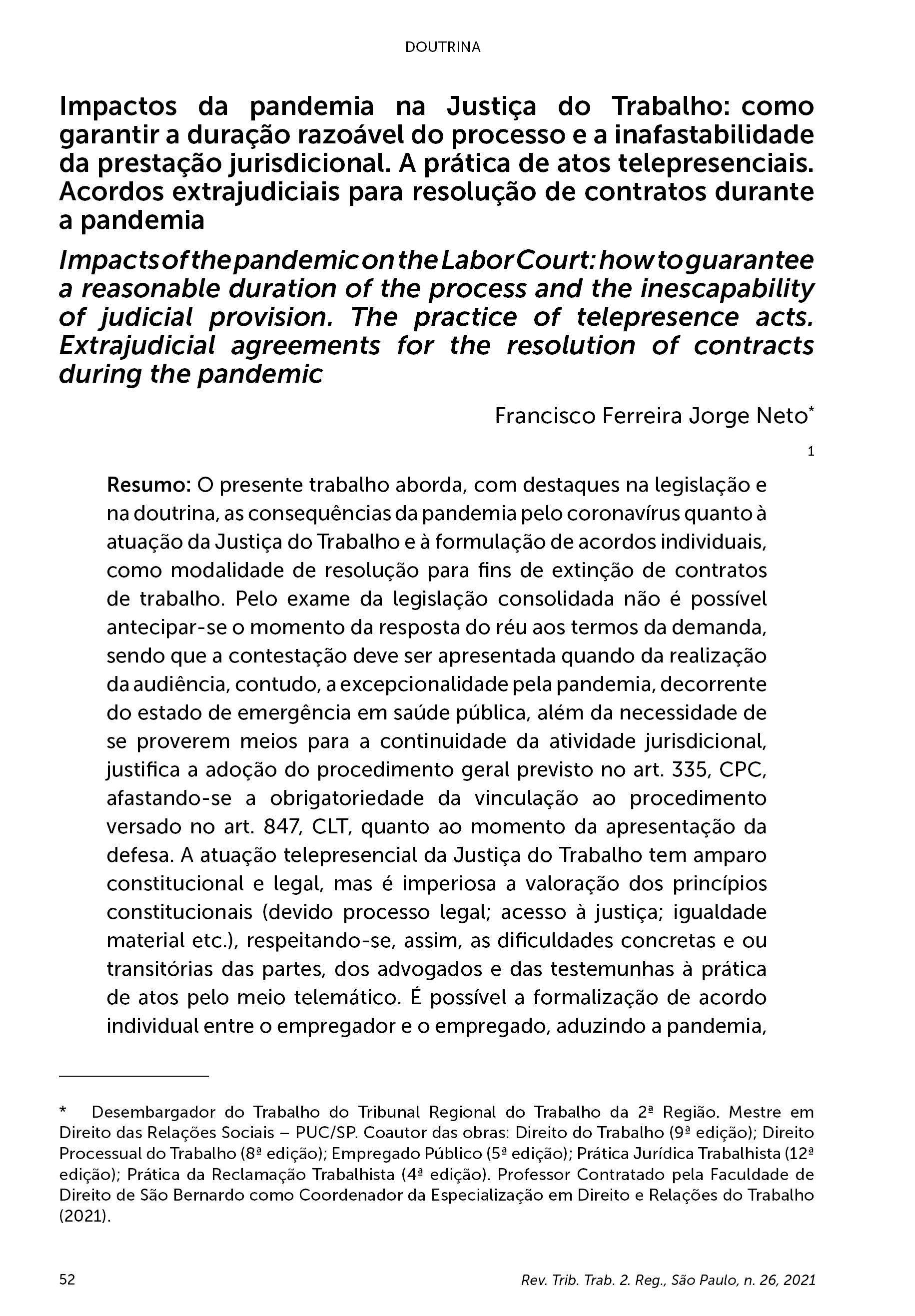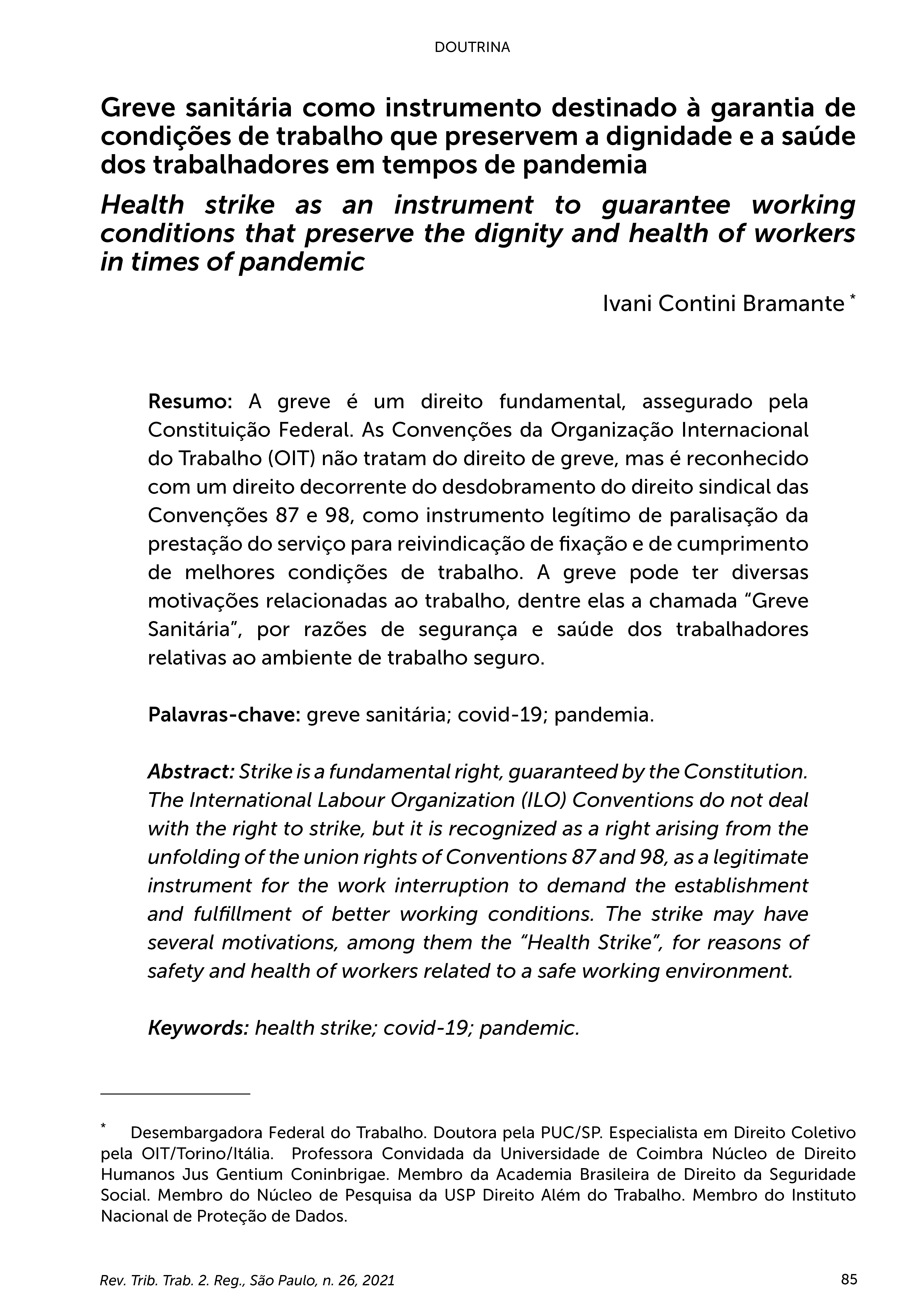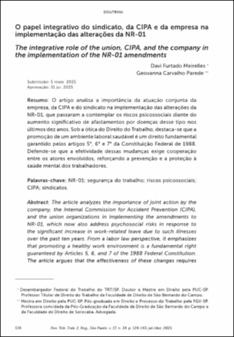Artigo de periódico
A legitimidade sindical e a execução coletiva concorrente como instrumento de efetividade jurisdicional na justiça do trabalho
| dc.contributor | Afonso, Túlio Augusto Tayano | |
| dc.contributor | Casali, Rodrigo Guedes | |
| dc.contributor.author | Afonso, Túlio Augusto Tayano | |
| dc.contributor.author | Casali, Rodrigo Guedes | |
| dc.date.accessioned | 2025-11-24T17:53:10Z | |
| dc.date.available | 2025-11-24T17:53:10Z | |
| dc.date.created | 2025-11-28 | |
| dc.date.issued | 2025-11-28 | |
| dc.identifier.citation | AFONSO, Túlio Augusto Tayano; CASALI, Rodrigo Guedes. A legitimidade sindical e a execução coletiva concorrente como instrumento de efetividade jurisdicional na justiça do trabalho = Union standing and concurrent collective enforcement as an instrument of jurisdictional effectiveness in labor justice. Revista do Tribunal do Trabalho da 2ª Região, São Paulo, v. 17, n. 34, p. 113-127, jul./dez. 2025. | pt_BR |
| dc.identifier.uri | https://basis.trt2.jus.br/handle/123456789/17804 | |
| dc.description.abstract | [por] O presente artigo examina a legitimidade do sindicato na condução, nos autos da ação coletiva original, da liquidação e execução individual dos créditos judicialmente reconhecidos em favor dos trabalhadores representados, de forma coletiva e simultânea às execuções individuais que podem ser propostas por empregados substituídos nas demandas coletivas. A investigação se baseia na análise sistemática do artigo 8°, inciso III, da Constituição Federal, do Tema 823 da repercussão geral do Supremo Tribunal Federal e da Orientação Jurisprudencial n. 121 da SDI-1 do Tribunal Superior do Trabalho, revelando uma nova interpretação sobre o papel do sindicato na fase de execução. Evidencia-se que a jurisdição da execução coletiva imposta por certos tribunais regionais, em especial decisões de 1ª Instância, não apenas desafia a ordem constitucional atual, mas também configura um obstáculo à efetividade da proteção jurisdicional e ao acesso real à justiça. A atuação sindical na liquidação/execução coletiva é apresentada como uma ferramenta racional, eficaz e essencial à efetivação dos direitos sociais, especialmente em contextos caracterizados pela fragilidade econômica e pela instabilidade do emprego em nosso país. A proposta defendida tem como objetivo estabelecer um modelo processual que, sem desconsiderar as execuções individuais, favoreça a plena concretização dos direitos reconhecidos nas ações coletivas, respeitando a função social do processo, a colaboração entre os assuntos processuais e a efetividade da jurisdição. | pt_BR |
| dc.description.abstract | [eng] The present article examines the legitimacy of trade unions in conducting, within the original collective action proceedings, the liquidation and individual execution of judicially recognized credits in favor of the represented workers, collectively and concurrently with the individual executions that may be initiated by substituted employees in collective lawsuits. The investigation is based on a systematic analysis of Article 8, Section III, of the Federal Constitution, Theme 823 of the Supreme Federal Court’s general repercussion doctrine, and Jurisprudential Guidance n. 121 of the SDI-1 of the Superior Labor Court, revealing a new interpretation of the union’s role during the execution phase. It becomes evident that the collective execution jurisdiction imposed by certain regional courts, particularly first-instance decisions, not only challenges the current constitutional order but also constitutes an obstacle to the effectiveness of judicial protection and real access to justice. Union activity in the liquidation/ collective execution process is presented as a rational, efficient, and essential tool for the realization of social rights, especially in contexts characterized by economic vulnerability and employment instability in our country. The proposed approach seeks to establish a procedural model that, without disregarding individual executions, promotes the full realization of the rights recognized in collective actions, respecting the social function of the legal process, cooperation among procedural subjects, and the effectiveness of jurisdiction. | pt_BR |
| dc.description.tableofcontents | Introdução -- A legitimidade sindical na execução coletiva trabalhista: fundamentos constitucionais e jurisprudenciais -- A efetividade da execução coletiva e a proteção do substituído trabalhador -- Liquidação e execução coletiva concorrente às individuais e a coerência sistêmica do ordenamento jurídico -- Considerações finais | pt_BR |
| dc.language.iso | pt_BR | pt_BR |
| dc.relation.ispartof | Revista do Tribunal do Trabalho da 2ª Região: v. 17, n. 34 (jul./dez. 2025) | pt_BR |
| dc.subject | Acesso à justiça | pt_BR |
| dc.subject | Conflito coletivo trabalhista | |
| dc.subject | Direito do Trabalho | |
| dc.subject | Direito processual | |
| dc.subject | Dissídio coletivo | |
| dc.subject | Execução trabalhista | |
| dc.subject | Jurisprudência | |
| dc.subject | Sindicato | |
| dc.subject | Trabalhador | |
| dc.subject.other | Direitos fundamentais | |
| dc.subject.other | Efetividade da execução | |
| dc.subject.other | Execução coletiva trabalhista | |
| dc.subject.other | Legitimidade sindical | |
| dc.subject.other | Processo coletivo | |
| dc.subject.other | Tema 823 STF | |
| dc.title | A legitimidade sindical e a execução coletiva concorrente como instrumento de efetividade jurisdicional na justiça do trabalho | pt_BR |
| dc.title.alternative | Union standing and concurrent collective enforcement as an instrument of jurisdictional effectiveness in labor justice | pt_BR |
| dc.type.genre | Artigo de periódico | pt_BR |
| dc.type.material | Documento textual | pt_BR |
| dc.relation.ispartoflink | https://basis.trt2.jus.br/handle/123456789/17758 | pt_BR |
| dc.publisher.place | São Paulo | pt_BR |
Coleção
-
Artigos de Periódicos132
Artigos de Periódicos



